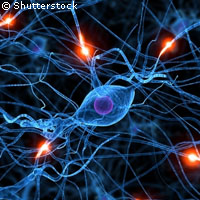New findings reinvigorate hopes for nerve cell regeneration
EU-funded scientists have forced damaged nerve cells to regenerate by administering a drug commonly used to treat cancer. The findings could one day lead to the development of effective treatments for injuries to the central nervous system. Mature nerve cells consist of a central body surrounded by several appendages called dendrites, which receive incoming messages from other nerve cells. The nerve cell passes messages on to other nerve cells via another appendage called an axon. Each nerve cell has several dendrites but only one axon; if the axon is damaged, for example by injury, it cannot grow back. As a result, injuries to the brain and spinal cord usually result in disabilities such as paralysis. In contrast to mature nerve cells, young nerve cells are able to repair themselves. If the growing axon is damaged, one of the young dendrites is converted into an axon, restoring the nerve cell's functionality. In this latest piece of research, scientists from the Max Planck Institute of Neurobiology in Germany investigated damaged adult nerve cells in the lab, to see if their dendrites could also be forced to turn into axons. After just five days the scientists observed that some of the cells' dendrites had become fully functioning axons which were able to pass on information to other nerve cells. The researchers found that the cell's 'skeleton' of microtubules played a key role in determining whether an appendage became an axon or a dendrite. The scientists were able to stabilise the microtubules by administering a drug called Paclitaxel, which is used in cancer therapy to strengthen the cell skeleton and prevent uncontrolled cell division. In the damaged nerve cells, the Paclitaxel had the effect of causing several axons to develop in one cell. 'It seems possible that after an injury to adult nerve cells, dendrite-axons can build a functional connection to other cells,' commented Susana Gomis-Rüth of the Max Planck Institute of Neurobiology. The next step for the scientists is to investigate whether dendrites can be converted into axons in living organisms, and whether this can be facilitated by the administration of Paclitaxel. If successful, this research could eventually lead to the development of new treatments for injuries to the central nervous system. EU support for the research came from a Marie Curie Intra-European Fellowship.
Countries
Germany



